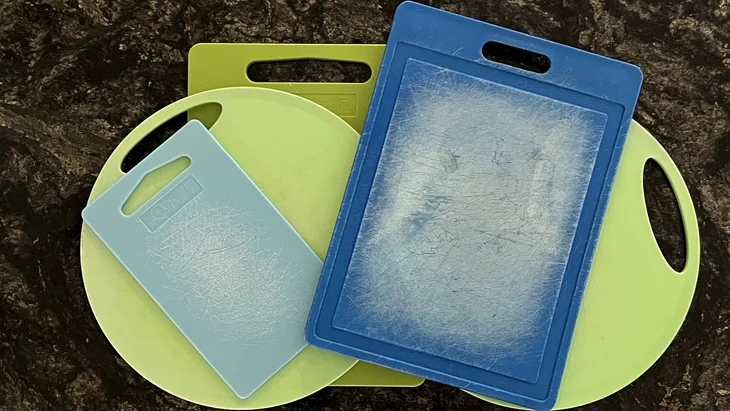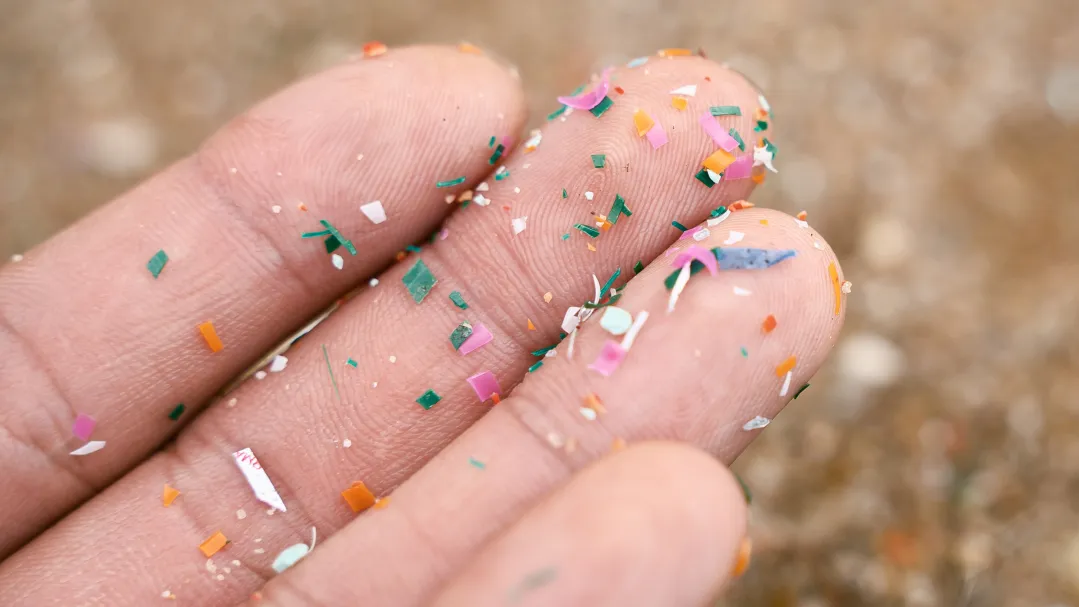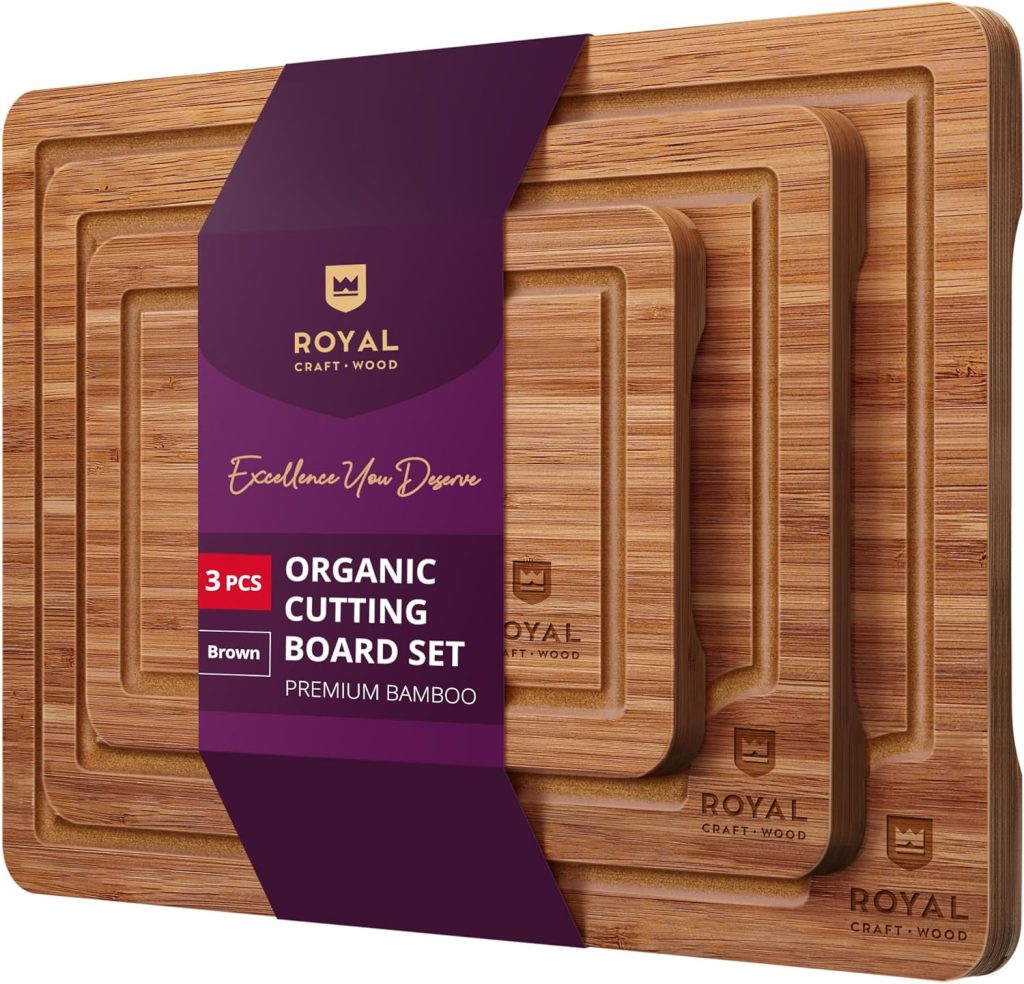We often overlook the everyday items we use in our kitchens, not realizing they might be hiding potential health hazards. Among these, plastic cutting boards are a common yet surprisingly risky tool. While they seem convenient and durable, plastic cutting boards can introduce harmful substances into your food and, ultimately, your body. But before diving into the safer alternatives, let’s first understand the real dangers associated with plastic cutting boards—especially the issue of microplastics — according to a recent study
Table of Contents
ToggleMicroplastics in Plastic Cutting Boards
Microplastics are tiny plastic particles less than 5 millimeters in size that result from the breakdown of larger plastic objects. These particles have become a significant environmental concern, showing up everywhere from the depths of the oceans to the food we eat. When you use a plastic cutting board, every slice and chop creates small grooves and scratches, where microplastic particles can break off and transfer to your food. This means that with every meal prepared on a plastic board, you could be ingesting microplastics.

The Impact of Microplastics on Our Bodies
The ingestion of microplastics is a growing concern among scientists and health experts. While research is still ongoing, evidence suggests that these particles can have several adverse effects on human health. For instance, microplastics can disrupt the endocrine system, leading to hormonal imbalances. They’ve also been linked to digestive issues and could potentially interfere with cellular functions, posing risks that range from mild discomfort to severe long-term health complications. And the chemical additives they release can disrupt the endocrine and reproductive systems

A recent study published in the journal Ecotoxicology and Public Health highlighted the extent of microplastic contamination from plastic cutting boards. The study found that each time food is chopped on a plastic cutting board, thousands of microplastic particles could be released and ingested. The long-term effects of these particles in the human body are still being studied, but initial findings suggest they may accumulate in organs, leading to chronic health issues. This raises serious questions about the safety of using plastic in food preparation.
Ways to Avoid Microplastics When Cutting Food
To avoid microplastic contamination from plastic cutting boards, consider these tips:
- Use Separate Boards for Different Foods: Designate specific cutting boards for different types of food, such as meat, vegetables, and bread. This reduces wear and tear from excessive use on a single board.
- Cut Gently: Avoid excessive force when cutting, as heavy chopping can cause more microplastic particles to be released. Use a sharp knife to minimize the need for pressure.
- Replace When Worn: Monitor your cutting boards for deep grooves, cracks, or rough surfaces. Replace them when they show significant signs of wear to reduce the release of microplastics.
- Clean Gently: Hand wash your cutting boards with a soft sponge instead of using abrasive pads or brushes. Avoid putting them in the dishwasher, as the high heat and harsh detergents can increase wear.
- Dry Properly: Allow your cutting boards to dry completely after washing to prevent bacterial growth and to maintain the board’s surface integrity.
- Store Properly: Store your cutting boards vertically or on a flat surface to avoid warping, which can create grooves where microplastics might accumulate.
- Avoid High Heat: Keep your cutting boards away from hot surfaces or direct sunlight, as heat can cause plastic to degrade more quickly and release microplastics.
Introducing a Smarter Choice: Wooden Cutting Boards
While there are several ways to minimize the release of microplastics from plastic cutting boards, one of the most effective approaches is to switch to a wooden cutting board.
Wooden cutting boards are naturally resistant to bacteria, self-healing, and durable, making them an excellent alternative for those concerned about microplastics. Unlike plastic, wood has natural antimicrobial properties that help keep your kitchen environment cleaner and safer.
Given the risks associated with microplastics, it’s clear that we need to consider safer alternatives for our kitchens. One of the best options is to switch to a bamboo cutting board, such as the Royal Craft Wood Bamboo Cutting Board
Why Bamboo Wood?
Bamboo wood cutting boards are not just a trendy choice; they are a practical and healthier alternative to plastic. Bamboo wood is a naturally antimicrobial material, which means it resists bacteria better than plastic. This feature alone makes it a more hygienic option for food preparation. Moreover, bamboo wood is a renewable resource, growing rapidly and without the need for harmful pesticides. This makes it an eco-friendly choice that contributes to a more sustainable kitchen.
The Royal Craft Wood Bamboo Cutting Board is also designed with durability in mind. Unlike plastic boards, bamboo wood is harder and more resistant to knife marks, which means it won’t develop the deep grooves where bacteria and microplastics can hide. This cutting board is also gentle on your knives, helping them stay sharper for longer. Its versatile design makes it suitable for various kitchen tasks, from chopping vegetables to serving cheese, making it a valuable addition to any home.

In conclusion, while plastic cutting boards may seem convenient, the hidden risks they pose to your health and the environment are too significant to ignore. By switching to a bamboo wood cutting board like the one from Royal Craft Wood, you’re not just protecting your health but also making a more sustainable and responsible choice. Take control of what’s on your cutting board and make the switch today to safeguard your kitchen and your well-being.



